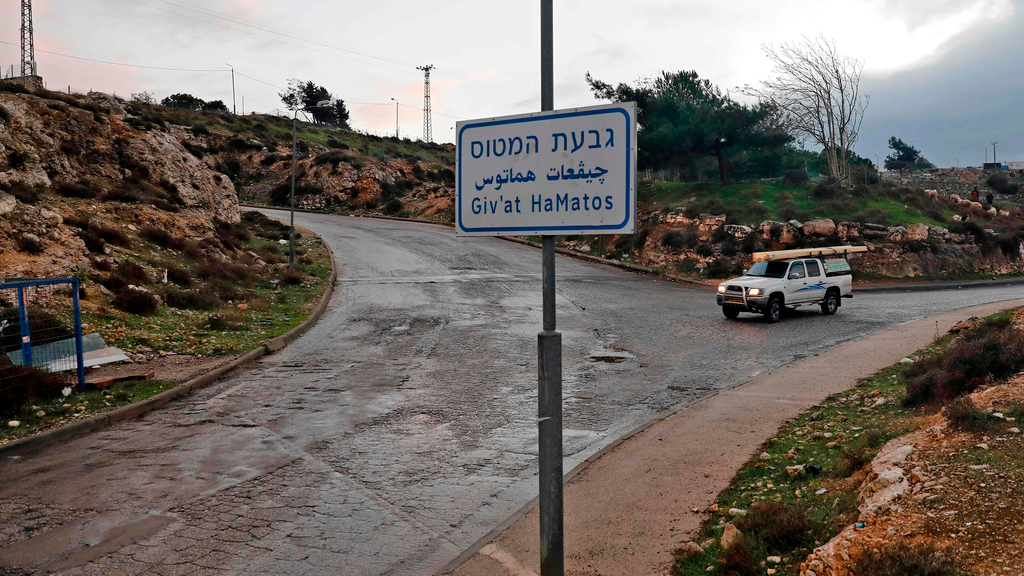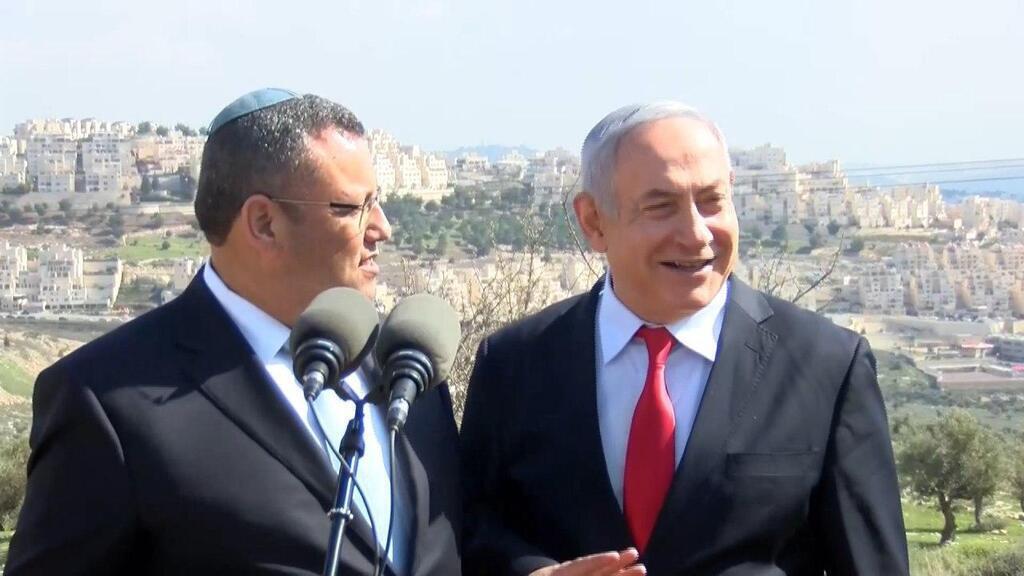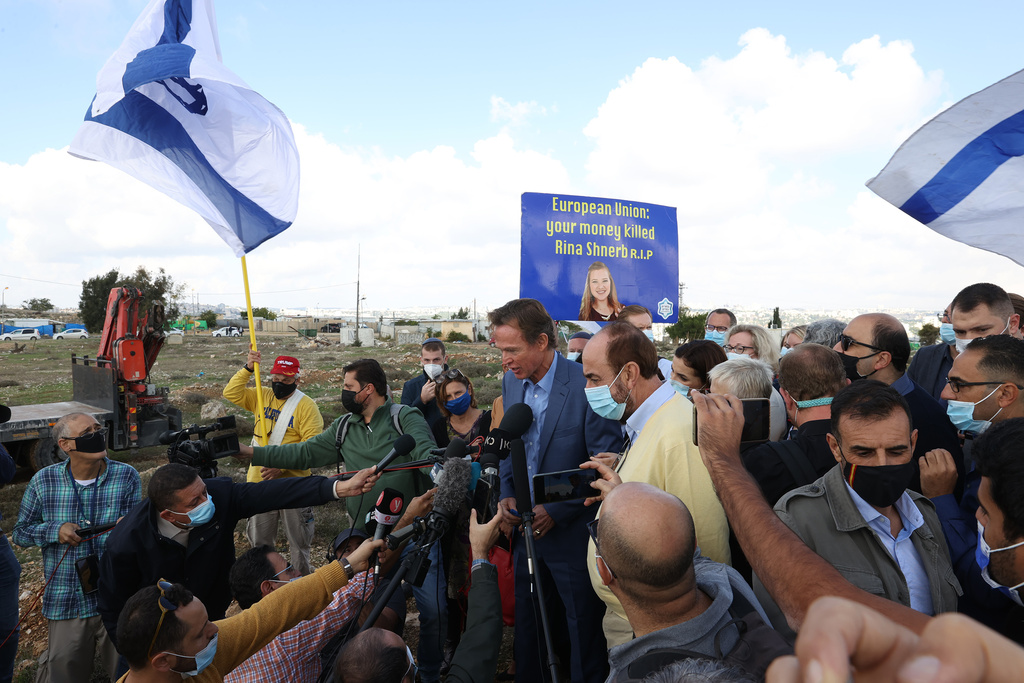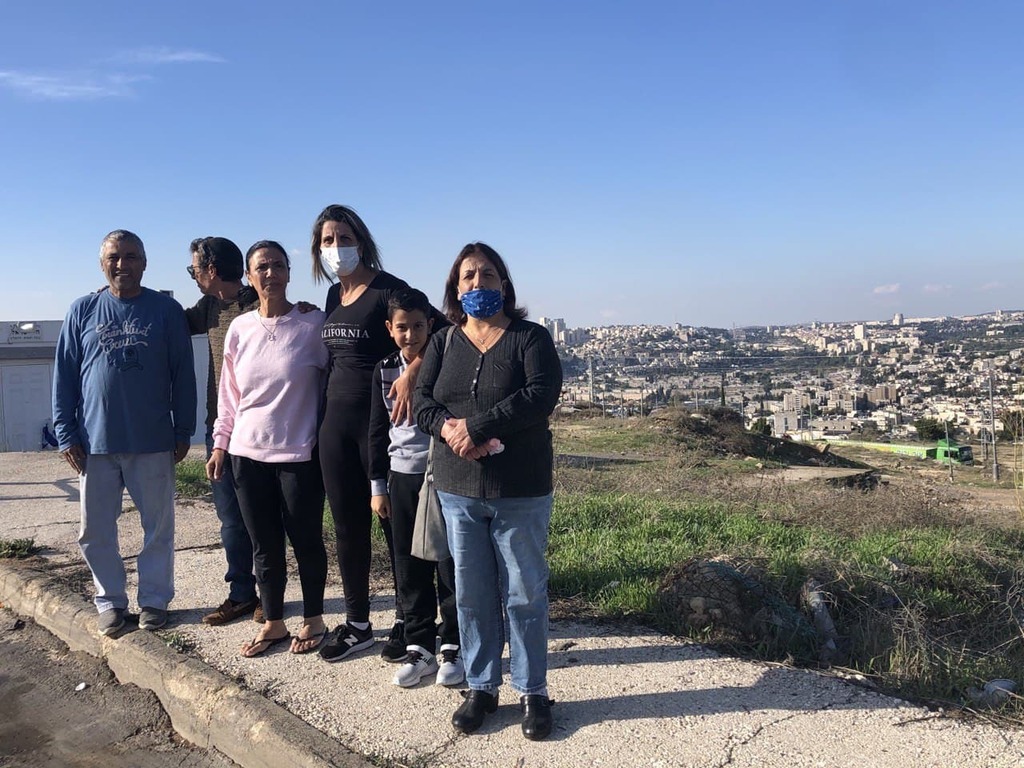Getting your Trinity Audio player ready...
The government's plan to develop East Jerusalem settlement of Givat Hamatos may have sparked international condemnation this week, but its residents remain skeptical that the construction of more than 1,200 new housing units will actually come light.
"We've heard this before," says Daniel Levi, who has lived in the area for the past 30 years. "I am not optimistic."
4 View gallery


A sign at the entrance to the East Jerusalem settlement of Givat Hamatos
(Photo: AFP)
The Israel Land Authority announced on its website Sunday that it had opened up tenders for more than 1,200 new homes in the settlement.
The move may test ties with the incoming administration of U.S. President-elect Joe Biden, who is expected to take a firmer tack against Israeli settlement expansion after four years of a more lenient policy under outgoing president Donald Trump.
The area between the Har Homa and Har Gilo neighborhoods in East Jerusalem has become a source of contention over the years. According to the Palestinians, construction there will form an Israeli buffer between the Arab neighborhoods in the eastern part of the city and prevent them from having future territorial contiguity, especially around the nearby Beit Safafa neighborhood.
4 View gallery


Prime Minister Netanyahu with Jerusalem Mayor Moshe Lion announcing plans to develop the East Jerusalem settlement of Givat Hamatos earlier in this year
(Photo: Archive)
In February and as part of his re-election campaign, Prime Minister Benjamin Netanyahu announced his plans to build 3,000 to 4,000 units for Arabs and Jews. "We are connecting all parts of Jerusalem together," Netanyahu said.
On Monday, a delegation of officials from the EU were forced out of the site after a confrontation with right-wing demonstrators and local residents.
4 View gallery


Right-wing activists and local residents confront EU officials at the East Jerusalem settlement of Givat Hamatos on Monday
(Photo: Amit Shabi)
Germany's foreign minister warned on Tuesday against unilateral steps that could hurt Mideast peace talks between Israel and the Palestinians following the change in administration in the United States.
The 30 families already residing in the area were concerned with their own housing conditions, claiming they had been repeatedly promised new apartments in the neighborhood's planned developments. But they have since seen their children grow and leave and their living conditions remain poor, with most residing in mobile homes provided by the government.
"I came here with small babies and today I am a grandmother," says long-time resident Michal Bibi.
Monique Elmakias, another resident, says former prime minister Ariel Sharon told them to remain on the site to protect it until development plans were completed.
Sharon, who was prime minister from 2001 to 2006, died in 2014.


